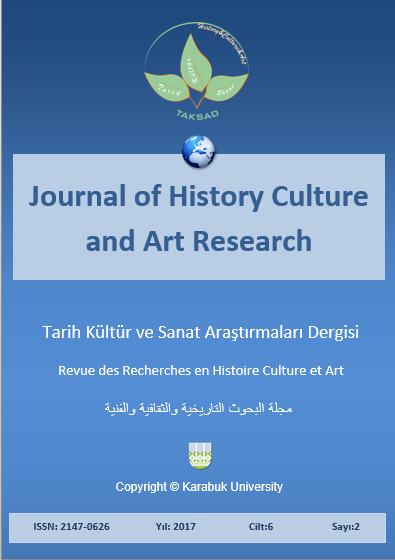Juridical-Legal Study of the Criminal Policy of Iran Regarding Prejudicial to Public Decency Crimes with an Approach to the Ancient Laws
DOI:
https://doi.org/10.7596/taksad.v6i2.860Keywords:
Prejudicial to public decency, Criminal policy, Punishment, Public chastity, Ancient law.Abstract
Iranian legislator has never presented a criterion for detecting crimes prejudicial to public decency, but instead of defining prejudicial to public decency crimes, the legislator has only stated prejudicial to public decency crimes. Because main purpose of this study is identifying concept of public decency crimes in the criminal code of Iran and ancient laws, their proper application regarding the changes of new Islamic penal code of Iran and its effectiveness on the decision-making of judges, based on the nature, scope and commentaries, this research studies the type and examples of prejudicial to public decency cries in ancient laws and response to public decency crimes, we will analyze severity and violence of punishment for these crimes. Challenging questions may raise in this regard, such as what is the type and examples of chastity crimes from ancient law view, Imamieh jurisprudence view and legal system of Iran? And how is the approach and response of ancient laws to chastity crimes compared to religious principles and punishment system of Iran's legal system? This research studies the history of chastity crimes in the jurisprudence teachings and identifies crimes prejudicial to public decency in the ancient laws and basis for accepting these crimes in legal system of Iran.
References
Akhondi, M. (1993). Criminal procedure. Vol. 2. Tehran: Culture and Islamic guidance publication.
Akhondi, M. (2000). Criminal code. Vol.4. Tehran: Esteragh publication.
Akhondi, M. (2003). Proving chastity crimes from other points of view. Women Strategic studies. No.22. Pp. 107-129.
Ardabili, M. A. (2000). General criminal law. Vol1. Tehran: Mizan.
Ashori, M. (1997). Criminal justice. Tehran: Ganje-Danesh.
Clarkson, C.M.V. (1992). Analysis of criminal code basics. Translated by Hussein Mirmohammadsadeghi. Tehran: Shahid Beheshti publication.
Dehkhoda, A. (1994). Dehkoda dictionary. Vol.3. Tehran: Tehran university publication.
Hore Amili, M. (2008). Vasayel-al-shia, vol4. Edited by Mohammadreza Zamiri. Qom. Tebian cultural institute.
Husseini Dashti, M. (2000). Teachings. Tehran. Islamic encyclopedia. Arayeh institute.
Irani Erbati, B. (2007). Criminal consultation ideas, Vol. 1. Tehran. Majd Publication.
Jafar Langeroudi, M. (1990). Legal articles. Vol.1. Tehran: Tehran university publication.
Mic, T. (1997). Code of Hammurabi. Translated Kamyar Abedi. Tehran: Cultural heritage organization.
Mohaghegh Damad, M. (2002). Jurisprudence. Vol. 4. Tehran: Islamic sciences publication center.
Mohaghegh Helli, A. (1993). Islamic religion. Translated by Abualqasem Ahmad Yazdi. Vol.5. Tehran: Tehran university publication.
Najafi Abrandabadi, A. & Badamchi, H. (2004). History of criminal law in Mesopotamia. Tehran: SAMT.
Najafi, M. (1988). Javaher-al-Kalam. Vol.41. Tehran.
Pirnia, H. (1991). Ancient Iran. Vol.1. Tehran: World of book.
Shambiati, H. (2001). General criminal law. Tehran: Zhobin publication.
Vahidi, M. (1984). Limitations and chastising, vol. 1. Qom: Vahidieh.
Validi. M. (2001). Prejudicial to public decency. Tehran: Amir Kabir publication.
Downloads
Published
How to Cite
Issue
Section
License
All papers licensed under Creative Commons 4.0 CC-BY.- Share — copy and redistribute the material in any medium or format
- Adapt — remix, transform, and build upon the material for any purpose, even commercially.
Under the following terms:
Attribution — You must give appropriate credit, provide a link to the license, and indicate if changes were made. You may do so in any reasonable manner, but not in any way that suggests the licensor endorses you or your use.
- No additional restrictions — You may not apply legal terms or technological measures that legally restrict others from doing anything the license permits.







